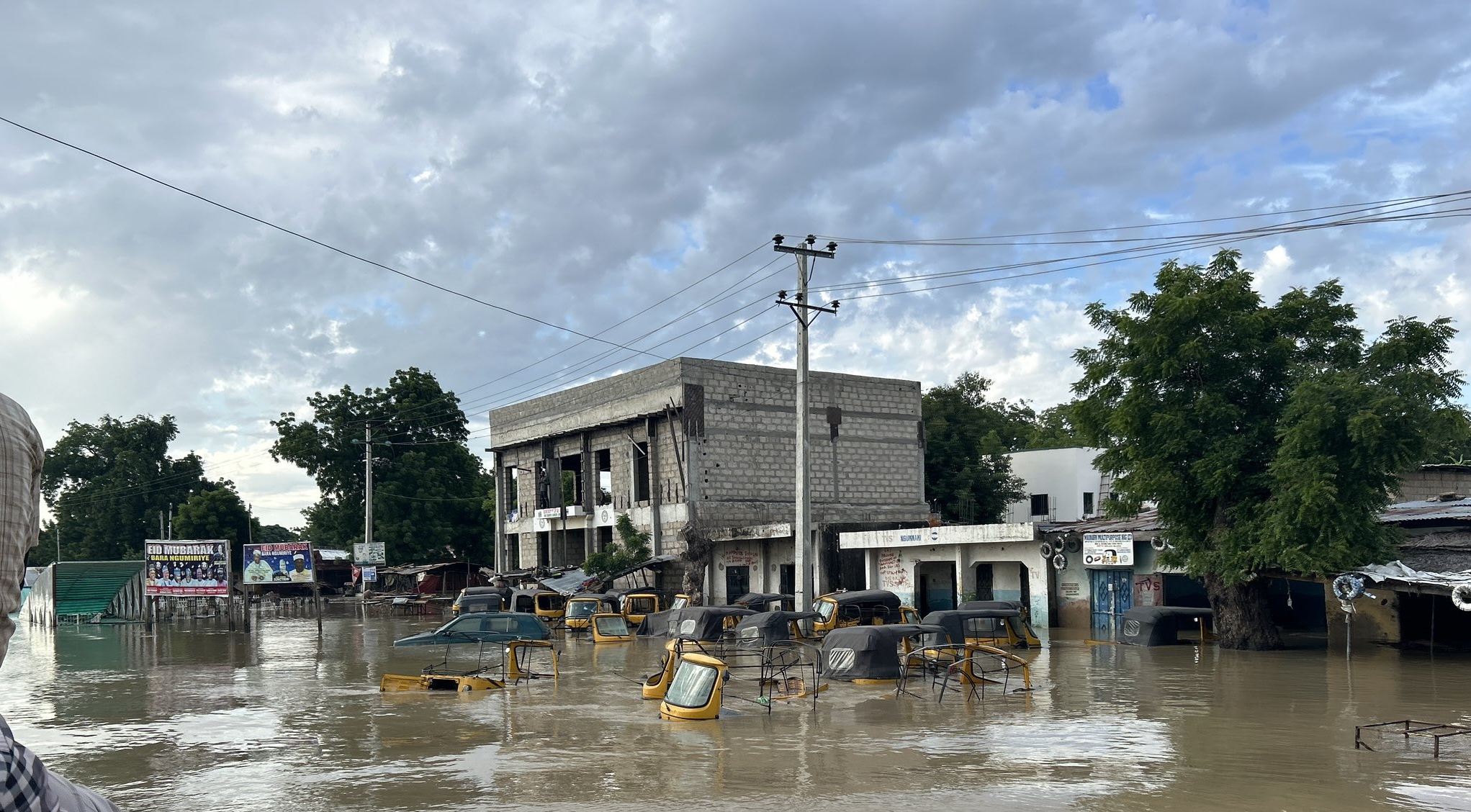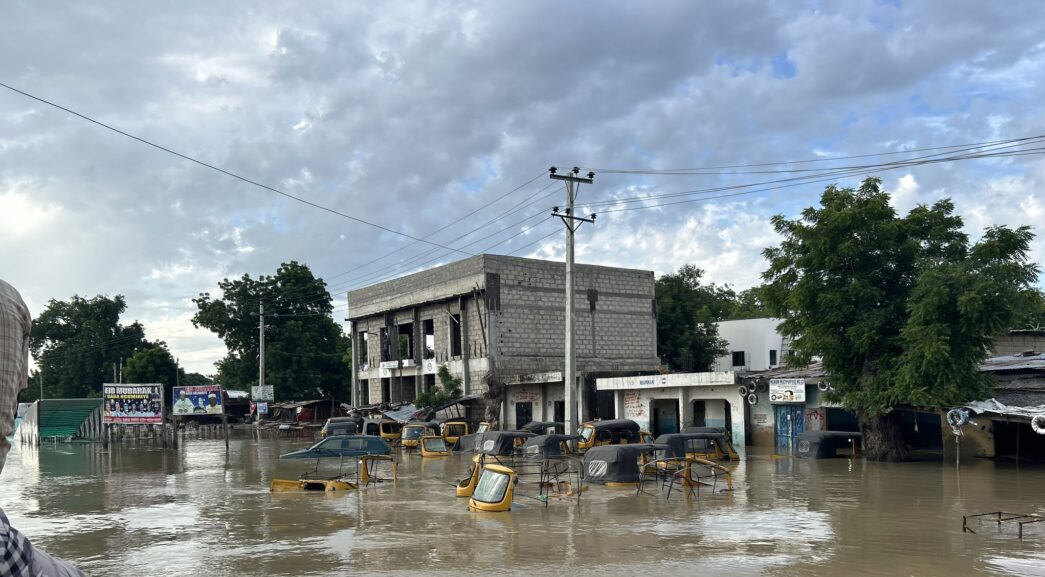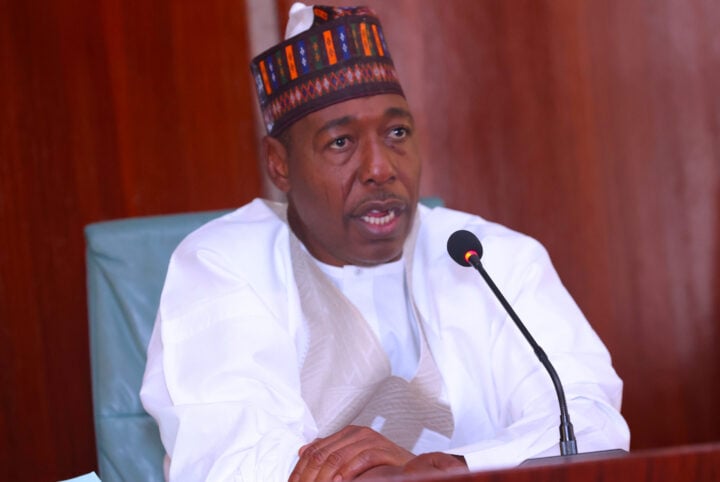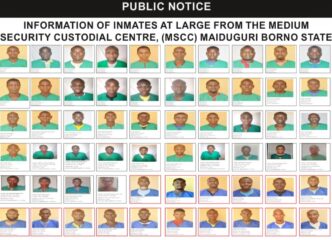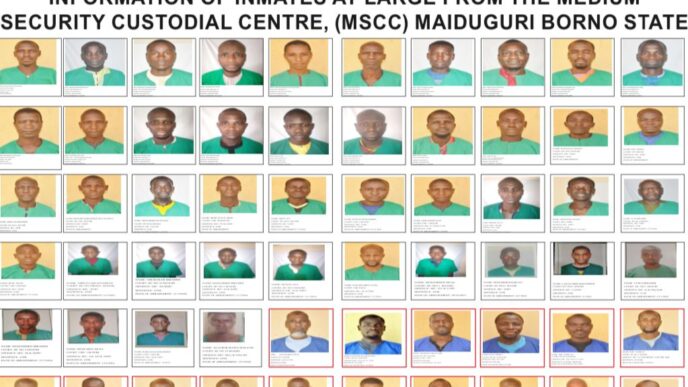The flood incident in Maiduguri has further compounded the humanitarian crisis in Borno state. Photo credit: Yusuf Akinpelu
Babagana Zulum, Borno governor, says over two million people have been affected by the flood in Maiduguri, the state capital.
The Alau Dam, which had been at full capacity for the past week, collapsed in the early hours of Tuesday, causing the worst flooding the state has experienced since the dam last failed thirty years ago.
In an interview with BBC News on Thursday, Zulum said the full extent of the damage and death toll would only become clear when the floodwaters recede.
He noted that thousands of displaced residents are seeking shelter in four camps while many remain trapped.
Advertisement
He added that while his administration has been distributing food, it is insufficient given the scale of the crisis, with some people stranded on rooftops without food for days.
“It is never enough; there is no way we can provide food for millions of people in just one or two hours,” he said.
“We have decided to organise ourselves, as that is the only way. We are coordinating efforts to ensure that flood victims move to camps, where we will provide aid.
Advertisement
“Otherwise, many will die due to a lack of food and other essential items while waiting in line.”
He expressed concern about reports that some prisoners, including Boko Haram members, had escaped as the flood also affected the correctional facility in Maiduguri.
“I am concerned, but it’s important to remember that the Borno State Government has implemented what we call the ‘Borno Model of Rehabilitation,’ which has led many Boko Haram members to renounce their ways,” Zulum said.
“In the past two years, over 200,000 Boko Haram members and their families have chosen a different path. I believe this initiative has brought positive results in restoring peace and stability to Borno State.”
Advertisement
Zulum added that the dam had not been maintained for a long time, and the heavy rains this year exacerbated the situation.
“The Federal Ministry of Water Resources is responsible for maintaining the dams, but they haven’t done so for a long time. This is an issue we need to address collectively,” he said.
“But the key factor this year has been the excessive rainfall, which exceeded the dam’s capacity.”
He also pointed out that the flood has worsened the ongoing Boko Haram crisis, which has plagued the state for fifteen years.
Advertisement
“I recall that more than 300,000 lives have been lost in Borno State,” he said.
“Thousands of classrooms and hundreds of health centres have been destroyed due to Boko Haram. We are still trying to recover from that challenge.
Advertisement
“Now, we face another disaster, a severe crisis that the state government cannot tackle alone.”
Advertisement
Add a comment
